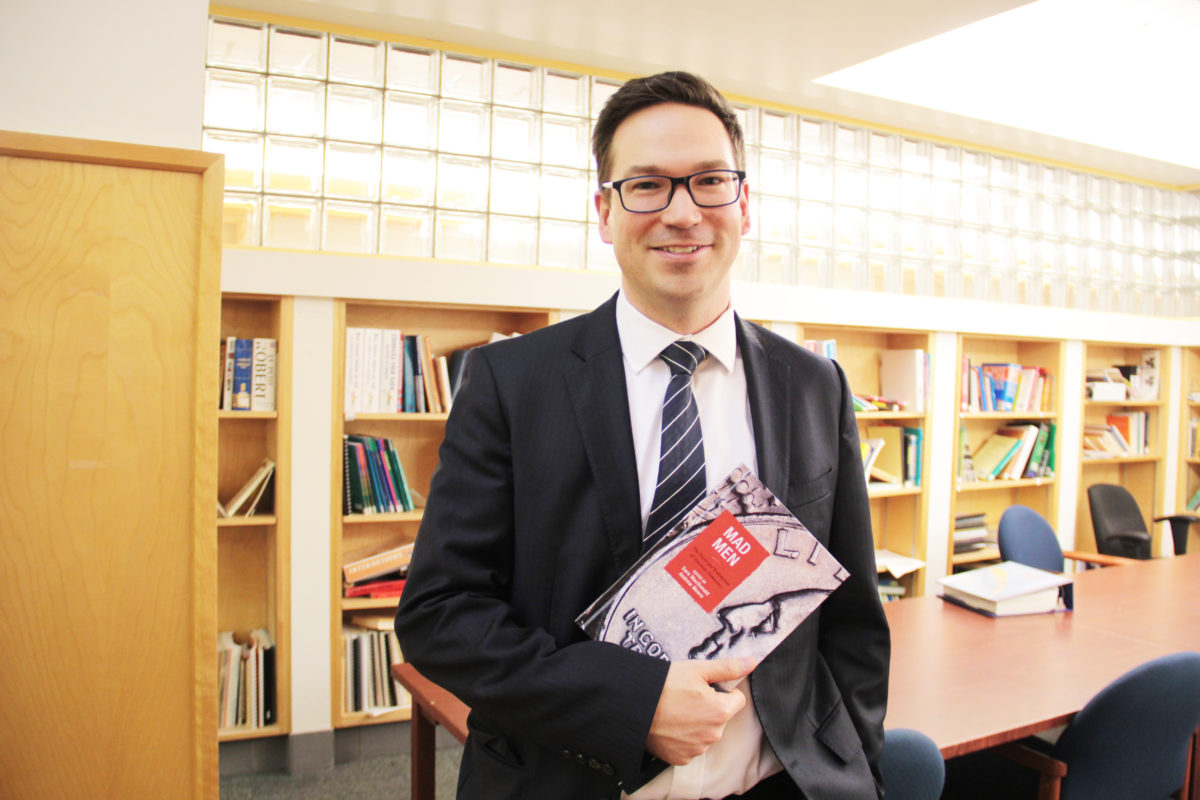St. Thomas University professor Andrew Moore held a book launch commemorating the publication of his book Mad Men: The Death and Redemption of American Democracy Friday afternoon.
The book, edited by Moore and fellow professor Sara MacDonald, is a collection of essays written by fellow professors, and analyzes how the politics and philosophies of American democracy are approached in Mad Men.
“Certain television shows … sustain [demand] for serious critical attention,” Moore said at the book launch.
Mad Men is a period drama set in the 1960s, and follows advertising agent Don Draper as he deals with the changing social attitudes of the time. It revolves around ‘60s cultures and the American dream, and works on themes of social change, social mobility, prejudice, civil rights and identity.
According to Moore, the topic of the book sparked between the two editors’ devotion to the series.
“We were just fans of the show,” he said. “After every new episode we’d wind up having arguments the next day in the hall about what it was about or what it meant.”
Moore said these debates evolved into speculations of the show’s views and intentions, and MacDonald eventually proposed writing a book based on their ideas. Various professors were approached for the project, and Moore and MacDonald pulled together these essays on the series’ approach to the American dream.
Moore said he felt a major challenge for the project was the full analysis of the series.
“There are 92 episodes of Mad Men, so that’s 92 hours of material, and there’s no way around watching hours and hours and hours of footage.”
Despite enjoying the show, Moore admitted that it felt like “a perverse spin on binge watching.”
Matthew Dinan, a STU professor and contributor to the book, said he felt the show had a clear distinction from low and high culture that made it ripe for taking apart.
“The best television shows we have are recognized as the best because they speak to [our] perennial questions,” he said.
Dinan felt the setting of the 1960s was “a tumultuous and important political time,” and this setting was necessary for raising questions about the country’s political system.
Moore said he hopes readers receive a deeper understanding of the show after reading.
“It starts with people arguing with their friend and in popular press, and I think what we can do as academics is … think about what these shows might be saying to us.”
Moore also said most of the essays are centred around the show’s most famous scenes, and hopes that readers can revisit these scenes and look at them in a different light. He also warned the whole series is analyzed, so those who haven’t finished the series should wait.
“If you haven’t watched the show and you want to be surprised, don’t read the book. Watch the show instead, then read the book.”

